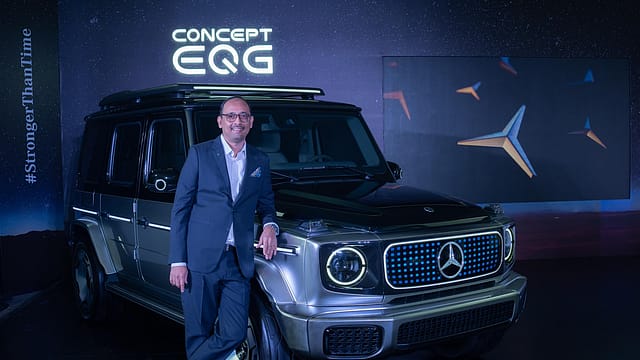India needs a 10-year roadmap for EVs: Mercedes-Benz India MD & CEO
ADVERTISEMENT

The government should issue a clear policy statement that the 5% GST (Goods and Services Tax) rate will continue on electric vehicles over the next 10 years, says Mercedes-Benz India managing director and CEO Santosh Iyer.
“If you don’t do that, then OEMs (original equipment manufacturers) won’t invest because these are expensive technologies. Till the time you don’t have this roadmap, it will be difficult for big players to come and develop the EV ecosystem in India,” Iyer tells Fortune India.
While GST is out of Budget, there should be clear statement in the Budget that some of these sops will not be short-term, he says. “We need a 10-year roadmap so that we go all in.”
The MD & CEO of India’s leading luxury carmaker says the GST rate differential for EVs is a good step which the government has taken. “5% GST on EVs versus 48% (including cess) on combustion engine cars is helping us in pricing these cars better,” says Iyer.
Iyer lauded the government for making good roads, saying it has helped carmakers. Capital expenditure on road infrastructure and development should continue, he says.
The biggest barrier to EV adoption, according to Iyer, is fear of change. “We have grown up with combustion-engine cars and are used to filling up fuel in a petrol station... We need a lot of conviction to tell customers that there is life in lithium-ion batteries even after 15 years. The state of charge hardly comes down by 10-15%, so it is even better than a combustion engine in terms of content and price. As that cycle has not happened, the trust factor is limited,” he says.
January 2026
Netflix, which has been in India for a decade, has successfully struck a balance between high-class premium content and pricing that attracts a range of customers. Find out how the U.S. streaming giant evolved in India, plus an exclusive interview with CEO Ted Sarandos. Also read about the Best Investments for 2026, and how rising growth and easing inflation will come in handy for finance minister Nirmala Sitharaman as she prepares Budget 2026.
Small measures such as EV chargers at prime parking spots will also help in faster adoption, says Iyer. “EV charging points in prime parking spots of Europe are free of cost so customers don’t even have to pay parking. It’s a big incentive for EVs,” he says.
Iyer believes there is no need to incentivise hybrid cars as they only improve fuel efficiency and don’t offer zero-emission driving.
“Countries worldwide don’t incentivise hybrids. Hybrids have both powertrains combustion engine and battery which makes them more expensive,” he says.
“Mercedes-Benz has good plug-in hybrids globally in its portfolio. If there is incentive on hybrids, we may consider bringing some of the plug-in hybrids to India but policymakers have to decide whether the goal is zero-emission mobility or fuel efficiency,” Iyer adds.
OEMs in India are already mandated by the government to comply with CAFE norms to improve fuel efficiency.
When asked about the new EV import policy which offers lower custom duties to auto companies looking to set up manufacturing in India, Iyer says the government should consider brownfield investments made to produce EVs.
“The government is doing stakeholder consultations. The final policy is yet to be out. You have to look at the luxury car market in India and whether localisation makes sense. We are already producing cars with our current setup. It’s about volumes and market potential that we see in the long run. Once the fine print is out, then we will evaluate the policy,” says Iyer.
